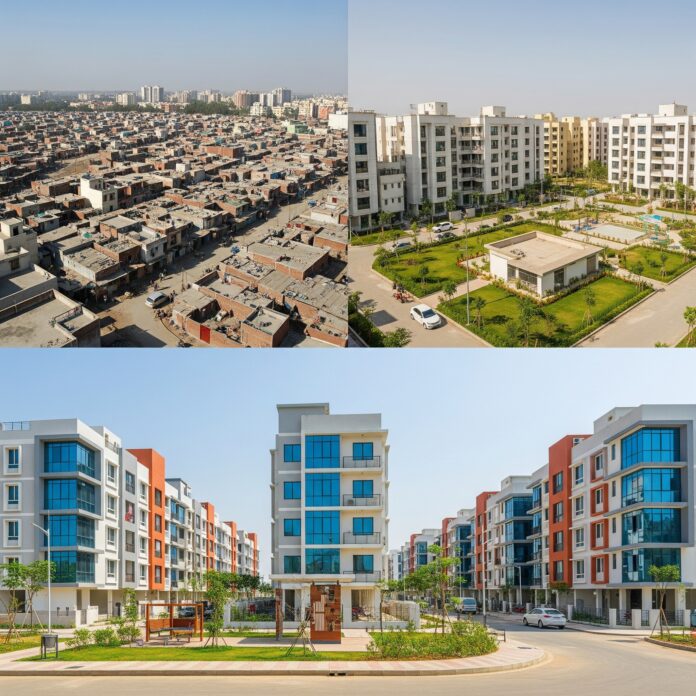BHOPAL, June 27, 2025 – Bhopal’s central area is set to undergo a significant transformation as authorities initiate a large-scale urban development plan, including the relocation of several slum settlements near Vallabh Bhawan. The ambitious project aims to shift residents to new, permanent housing in the Banganga area and other nearby locations, approximately 3 to 5 kilometers away.
Nine specific slum settlements situated near the high-security Vallabh Bhawan zone – namely Vallabh Nagar, Vallabh Nagar-2, Om Nagar, Bhim Nagar, Durga Nagar-1 and 2, Ashok Samrat Nagar, Kumharpura, and Jhada Colony – are slated for relocation. These communities will be rehoused in an estimated 14,000 permanent residences to be constructed through a Public-Private Partnership (PPP) arrangement, primarily on identified government land in Banganga. Officials confirmed that initial plans for on-site redevelopment were cancelled due to the proximity of these slums to the high-security zone.
This comprehensive initiative, part of the broader “Jhuggi Mukt Bhopal Yojana” (Slum-Free Bhopal Scheme), targets 388 slums and over 1.5 lakh households across the city, emphasizing slum rehabilitation with crucial private sector participation.
Senior officials, including Divisional Commissioner Sanjeev Singh, Collector Kaushlendra Vikram Singh, and Bhopal Municipal Corporation Commissioner Harendra Narayan, have reviewed the detailed proposal. Sources indicate that construction will commence once the urban administration department grants approval to the detailed project reports.
A key aspect of this relocation is the freeing up of approximately 125 acres of valuable land in central Bhopal. Following the identification phase, this land will be monetized, leveraging its prime location. Private developers are expected to play a dual role: constructing new housing for the relocated residents and simultaneously developing commercial spaces on the monetized land to ensure the project’s long-term sustainability.
Earlier in November, the Bhopal Municipal Corporation (BMC) began conducting computerized socio-economic surveys across the entire state capital, including the crucial MIS (Management Information System) entry of households within the identified slums, laying the groundwork for this massive urban overhaul.

